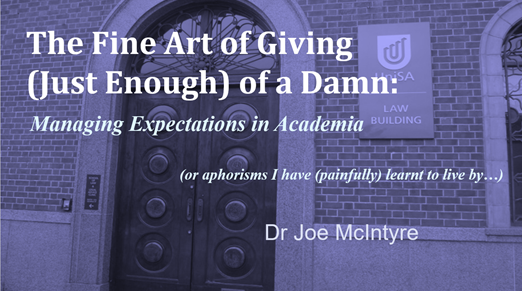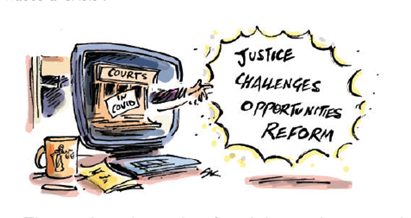And we are off! VU @CowenCentre hosting Colloquium of Trust. Starting with a discussion of 'objects' of trust - a great way to explore what this concept means #trust2020
We start with Valerie Braithwaite reflecting on what trust is and why it matters.
Great talk that has left me ruminating on the nature of trust.
Is 'trust' a good thing? Is the concept of 'trust' relevant in the absence of its potential for abuse?
Great talk that has left me ruminating on the nature of trust.
Is 'trust' a good thing? Is the concept of 'trust' relevant in the absence of its potential for abuse?
Next we have psychologist Jane Goodman-Delahunty on the 'measurement' of trust. She is particularly interested in trust in juries and what this can tell us about them.
As a legal theorist, it is great to get these different perspectives on how this can be done.
As a legal theorist, it is great to get these different perspectives on how this can be done.
And now David Tait on trust and online hearings.
If people haven't seen, I encourage people to look at the report on distributed justice:
courtofthefuture.org/wp-content/upl…
If people haven't seen, I encourage people to look at the report on distributed justice:
courtofthefuture.org/wp-content/upl…
And now time for the virtual morning tea! For those following at home, here is the delivery next to my 'trust object': 

Currently having a great debating with @ananianwelsh @Natural_Justice, Christopher Roper and Anne Wallace about the role of court ritual and formality in shaping judicial decision-making and acceptance.
How do we maintain these elements when we shift online?
How do we maintain these elements when we shift online?
I great discussion currently happening regarding the nature of the relationship between 'trust' and leadership
Great discussion from Leon Mann on this idea, and is triggering animated chat about how this relates to the current context
Great discussion from Leon Mann on this idea, and is triggering animated chat about how this relates to the current context
This was a great day. A model of how to do the online conference thing - honestly I think it was better than a f2f conference for this type of thing
• • •
Missing some Tweet in this thread? You can try to
force a refresh










